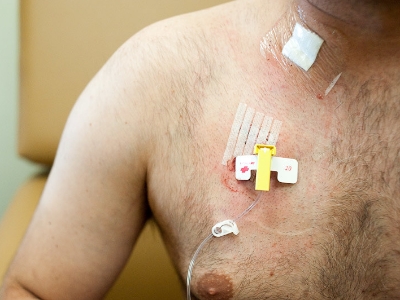Medical Tips For Nausea And Vomiting Caused By Cancer Treatment

One of the most common side effects of cancer treatment is nausea. It can be caused by chemotherapy, radiation therapy and even anaesthesia. Dehydration or constipation can play a part, too. Several medications are available now to help patients manage nausea.
What are Nausea and Vomiting?
Nausea and vomiting are common and sometimes serious side effects of cancer treatment. Chemotherapy, radiation therapy, and other cancer treatments can cause nausea and vomiting.
Nausea feels queasy, sick to your stomach, or like you might throw up. Vomiting is throwing up the food and liquid in your stomach.
It is important that your nausea and vomiting are controlled and managed. If these aren’t, these problems can affect your daily life, mental health, and physical health and even delay treatment. Relieving side effects, palliative care or supportive care, is an important part of cancer care and treatment.
What Causes Nausea and Vomiting When On Cancer Therapy?

When you have cancer, the causes of nausea and vomiting can include the following:
- Chemotherapy. Nausea and vomiting are common side effects of certain chemotherapy drugs. Your healthcare team may call it chemotherapy-induced nausea and vomiting (CINV). And a higher dosage of chemotherapy can make your side effects worse.
- Radiation therapy. Radiation therapy to large areas of the body, specifically the gastrointestinal (GI) tract, liver, or brain, can cause nausea and vomiting. A higher radiation therapy dosage is also more likely to cause these symptoms.
- Other medications used in cancer care. Other drugs used to treat cancer, including targeted therapy and immunotherapy, can cause nausea and vomiting. Some medications to help with side effects can also cause nausea and vomiting. For instance, pain medications commonly cause stomach problems.
Types of Nausea and Vomiting Caused By Chemotherapy and Radiation Therapy
- Delayed nausea and vomiting usually start more than 24 hours after treatment and can last up to a few days after treatment ends.
- Anticipatory nausea and vomiting are learned or conditioned responses. It appears to result from previous experiences with treatment that led to nausea and vomiting, in which the brain pairs some parts of the treatment, such as the sights, sounds, and smells of the treatment area, with vomiting.
- Breakthrough nausea and vomiting happen even though treatment has been given to prevent it. When this happens, you may need more or different medicines to help prevent further nausea and vomiting.
- Refractory vomiting is when you’reyou get medicines to prevent or control nausea and vomiting, but the drugs are not working. Your nausea and vomiting have become refractory to the medicines you’reyou take to prevent it. You may need more or different medicines to stop nausea and vomiting.
Nausea and vomiting can be caused by radiation therapy based on the following:
- Total body irradiation is linked to a high risk of nausea and vomiting if treatment is not given to prevent it. Patients may also get high doses of chemo to prepare for the transplant, raising the chance of nausea and vomiting.
- The part of the body being treated. The risk is greatest when the brain is treated or the area of the body being treated includes a large part of the upper abdomen.
- The dose of radiation given. The bigger the radiation dose given, the higher the risk for nausea and vomiting.
Treatment, Management, and Prevention of Nausea and Vomiting

You can take steps to reduce your risk of nausea and vomiting. For example:
- Eat what appeals to you. It’s best, however, to avoid sweet, fried or fatty foods. In addition, cool foods may give off less bothersome odours.
- Eat small meals. Stagger small meals throughout the day rather than eating fewer, larger meals. If possible, don’t skip meals. Eating a light meal a few hours before treatment also may help.
- Drink lots of fluids. Try cool beverages, such as water, unsweetened fruit juices, tea or ginger ale that’s lost its carbonation. It may help to drink small amounts throughout the day rather than larger amounts less frequently.
- Cook and freeze meals before treatment to avoid cooking when you’re not feeling well. Or have someone else cook for you.
- Avoid unpleasant smells. Pay attention to what smells trigger nausea and limit your exposure to unpleasant smells. Fresh air may help.
- Use relaxation techniques. Examples include meditation and deep breathing.
- Make yourself comfortable. Rest after eating, but don’t lie flat for a couple of hours. Try wearing loose fitting clothing and distracting yourself with other activities.
- Consider complementary therapies. Complementary and alternative therapies, such as acupuncture and aromatherapy, may help you feel better when combined with your doctor’s medications. Tell your doctor if you’re interested in trying these treatments. He or she may be able to recommend a practitioner who works with people undergoing cancer treatments.
A recommended prescription that can be used for nausea and vomiting:
- Ondansetron – this drug is in a class of medications called serotonin 5-HT3 receptor antagonists. It works by blocking the action of serotonin, a natural substance that may cause nausea and vomiting.



